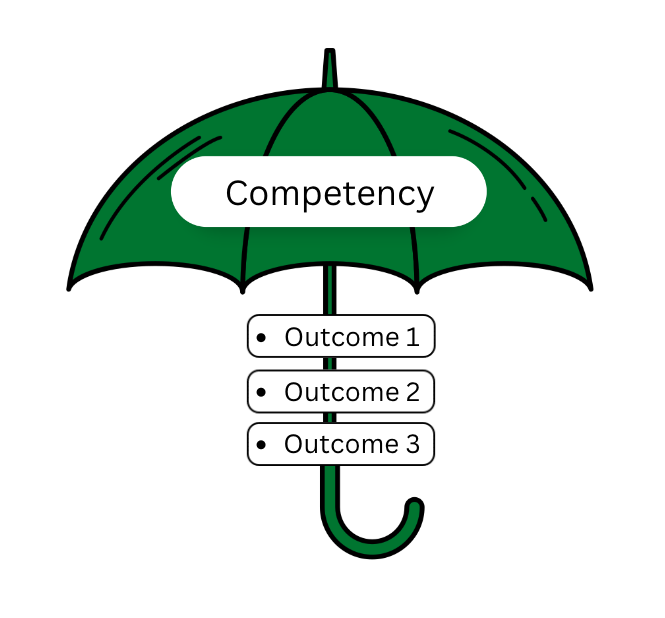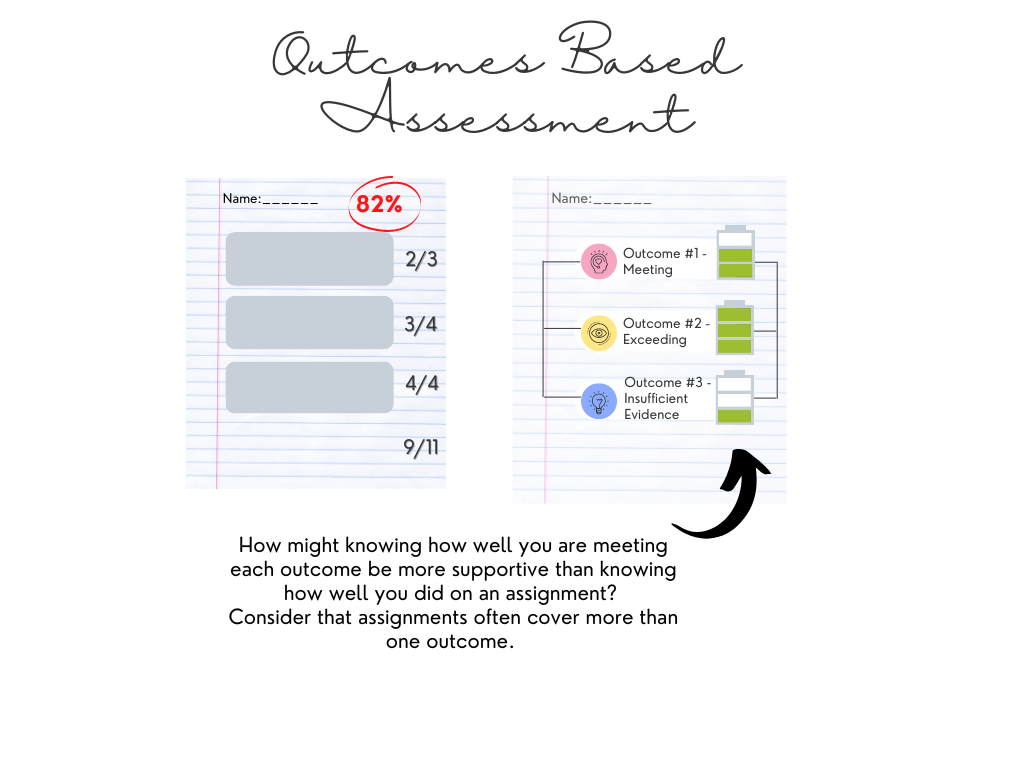-
Writing Learning Outcomes using Generative AI
We know that learning outcomes are essential for orienting students, articulating them can be an arduous process. Where does one even begin? Thankfully, this is one area where Generative AI’s capabilities to support teaching really deliver. Using a text-producing AI tool such as the USask created tool ALDA (AI Learning Design Assistant), insert as many details about your course and the desired output as possible. Here is a sample prompt that you might submit to AI to produce course-level learning outcomes: Please create 6 learning outcomes that consider the following parameters. This is a university course at the [ordinal] year level of a [discipline] program. The course title is: “[Course…
-
Defining Competencies and Outcomes
Summary: Improve your course clarity with competencies and outcomes. Learn how to break down complex skills into measurable parts for better student understanding and success. Date of publishing: January 16, 2023 Defining Competencies and Outcomes Although there is no widely accepted distinction between a competency and an outcome, there is sufficient commonality for the following working definition to be used to improve the structure and clarity of courses and programs. A competency is an overarching capability the learner can do. Examples include critical thinking, problem solving, effective communication, design functions, or physical performative skills. Since a competency is generally too complex to measure on its own, it must be broken…
-
Assessing Outcomes versus Grading Assignments
Shift your focus from grading tasks to assessing outcomes. Learn how this approach fosters deeper learning and provides a more meaningful evaluation of student progress. In this article, we will examine why assessing outcomes can target learning improvements better than grading assignments.Ooutcomes-based assessment starts with articulating what students will be able to do (the learning outcomes), followed by designing learning activities and assessments linked to the outcomes. However, even with clear outcomes and learning activities, instructors often fall into the habit of grading assignments rather than assessing outcomes. Consider the following scenario. Learner 1 and Learner 2 both have 75% in your class. How do you, the instructor, or the…
-
Outcomes-based Assessment
Traditional forms of assessment, often norm-referenced, are increasingly mixed with outcomes-based assessment in campuses in Canada. Often, outcomes-based systems start in professional programs with accreditation standards, where it is important that all graduate have minimal standards of competence, and are not just rated in comparison to their peers. As the use of outcomes-based teaching and assessment is becoming more common, people are wondering what the difference between traditional and outcomes-based assessment is. What is outcomes-based assessment? It starts with faculty members articulating what they want students to be able to do when they complete the learning. This is called an outcome and it is different than thinking about what you…

